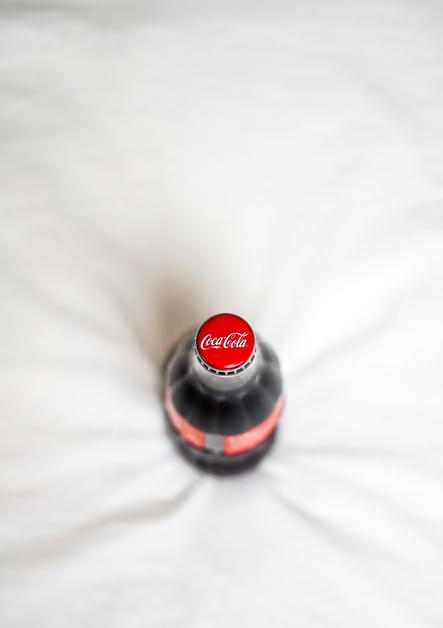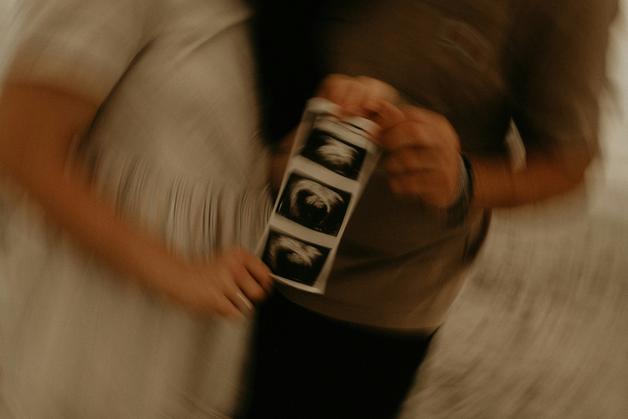A bubbly glass of cola, the familiar fizz, the sudden urge for something sweet and refreshing—Coca-Cola during pregnancy often finds its way into the daily cravings of many to-be parents. But in these pivotal months where every bite and sip seems to carry its own set of practical questions, it is simple to feel a swirl of confusion, uncertainty, and occasional guilt. How does this iconic drink fit into pregnancy nutrition and safety? Does that cold can pose a genuine risk, or can a parent enjoy it without worry? Facing medical facts, parental anxieties, and a sea of advice, it is time to sift carefully through what science reveals and what individual needs suggest. From caffeine and sugar to fizz and flavourings, every aspect deserves clarity, compassion, and science-backed perspective—so you can make confident, balanced decisions that suit your routine and wellbeing.
Key Ingredients in Coca-Cola During Pregnancy: What’s Inside and Why It Matters
Open the can, and you get more than just refreshment—there’s caffeine, a significant dose of sugar, sometimes artificial sweeteners, and a medley of acids and colorants. The story behind each compound is more nuanced than it might seem.
- Caffeine content: Even just one can of Coca-Cola during pregnancy, at about 34 mg per 12 oz (355 ml), means a parent should tally up other sources—think coffee, tea, even some pain relievers. Caffeine is quickly transferred from parent to fetus, but unlike the adult body, a developing fetus lacks the enzyme to break it down efficiently. Excess caffeine intake—steadily above 200 mg per day—has been linked by studies to increased risks of miscarriage, preterm delivery, and low birth weight. Is the concern overblown with one soft drink? Not usually, but frequent consumption without tracking the overall total might quietly push limits.
- Sugar content: One serving of Coca-Cola during pregnancy already contains nearly 39 grams of sugar—that’s almost 8 teaspoons right there. The American Heart Association and most diabetes foundations keep the daily limit much lower (about 25 grams added sugar per day for adults). In pregnancy, blood sugar fluctuations are not trivial; rapid spikes can heighten the chances for gestational diabetes, excessive maternal weight gain, and possibly bigger babies at birth, which adds delivery risks. For parents managing nausea or seeking energy, reaching for Coca-Cola during pregnancy is understandable—but the high glycemic load calls for moderation.
- Artificial sweeteners: Maybe you consider the Diet or Zero versions, which replace sugar with aspartame or acesulfame-K. Leading regulatory bodies, including the FDA and EFSA, confirm safety of these sweeteners in reasonable amounts, but not all research is reassuring. Some studies pose questions about long-term child outcomes, especially if high quantities are consumed daily. For now, medical organizations do not restrict sporadic use of diet sodas but encourage prudent, balanced intake.
On a different note, phosphoric acid (for tang and preservation) shows up in every can. In excess, this might impact calcium absorption, but ordinary intake is not known to cause harm if a parent’s diet has sufficient calcium.
The Science of Caffeine and Pregnancy: Practical Guidance
Does a little caffeine deliver more than a gentle boost of energy? The placenta does not filter out caffeine, and the fetus metabolizes it much more slowly. Exceeding 200 mg per day is where risks start to show up—increased likelihood of pregnancy loss, fetal growth restriction, and lower birth weights, according to large-scale research. Is a single can of Coca-Cola during pregnancy enough to tip the balance? Rarely, but it belongs to the cumulative count. Layer the math: a morning coffee, an afternoon cola, an evening tea—it adds up.
- Spread caffeine throughout the day.
- Count all possible sources, even chocolates and sodas.
- Discuss with your medical provider, especially if sleep issues, jitters, or unusual symptoms appear.
Sugar, Sweeteners, and the Real Impact on Pregnancy Health
The lure of sweetness is hard to resist, especially when fatigue or cravings strike. Yet, a typical serving of Coca-Cola during pregnancy delivers more sugar than is medically considered optimal. When sugar intake becomes habitual, complications may surface: gestational diabetes, higher birth weights (making delivery complicated), and increased risk of future childhood obesity.
- Regular Coca-Cola? High sugar, instantly absorbed.
- Zero or Light Coca-Cola during pregnancy? No sugar spike, but artificial sweeteners whose long-term effects are still debated.
- Both regular and diet forms have negligible nutritional benefit for pregnancy—these are more treat than nourishment.
Colorants like caramel E150d and acids included for taste and texture are assessed as low risk at common intake levels, though parents aiming for optimal bone health are encouraged to consume plenty of dietary calcium if they enjoy soda regularly.
Fizzy Myths, Digestive Realities, and Medical Facts
Carbonation—those famous bubbles—brings up plenty of questions. No evidence indicates that bubbles themselves can affect fetal health directly. Some parents describe quick relief from nausea with chilled, fizzy drinks. Others note increased bloating or worsening heartburn.
- For some, occasional Coca-Cola during pregnancy settles the stomach during rough mornings.
- For others, it may aggravate discomfort. Response can be very individual.
- Research finds no effect from carbonation itself on baby’s development, but sugar and caffeine excesses remain the true concern.
Dietary Choices: Are Diet and Zero-Calorie Sodas Safer?
Choosing a sugar-free version might seem like an ideal compromise: sweet taste, no glucose spike. But these drinks still deliver caffeine and several artificial sweeteners. Moderate, occasional intake is widely seen as safe. It is the lack of nutrition, rather than a clear danger, that makes them less than ideal as a beverage habit in pregnancy.
- Prefer variety. Rotate drinks rather than replacing water or milk with soda.
- Allow yourself mindful treats, especially for emotional satisfaction, while underpinning your routine with nutritious choices.
When Does Coca-Cola During Pregnancy Become a Risk?
Is it the quantity, or the frequency? As medical literature suggests, both matter. The main issues from Coca-Cola during pregnancy come from sustained high consumption of caffeine or sugar, leading to recognized complications:
- Gestational diabetes (a form of high blood sugar that starts in pregnancy)
- Macrosomia (large baby)
- Maternal hypertension (high blood pressure)
- Low birth weight
- Possible connections to future metabolic disorders in children
Experiencing persistent vomiting, abnormally fast weight gain, swelling, headaches, or unusual thirst? These symptoms might signal complications like gestational diabetes or hypertension; a medical check-up is warranted.
Guidelines for Coca-Cola During Pregnancy: Evidence, Limits, and Practical Tips
Medical consensus, reinforced by frequent studies, encourages the following:
- Caffeine: 200 mg per day maximum (add up all drinks/foods).
- Sugar: 25 grams a day maximum for added sugars.
- One can of regular Coca-Cola during pregnancy (355 ml) brings about 34 mg caffeine and 39 g sugar—enough to exceed just the sugar limit in a single serving.
- Diet/Zero: Free of sugar but brings caffeine and additives—less problematic, but not encouraged as daily hydration.
Watch portion sizes. Larger bottles or fast-food servings might double or triple the intended dose without notice. Always account for what’s in your cup.
Reducing Soda: How to Smooth the Transition
Planning to cut back on Coca-Cola during pregnancy, but not sure where to start? Consider these straightforward strategies:
- Observe when cravings arise—after heavy food, during afternoon slumps, or as a comfort ritual.
- Stock healthy alternatives, ready to grab. Fruit-infused water or lightly sweet lassi can work wonders.
- Keep sodas out of regular stash if possible—if they’re not there, temptation drops.
- Make your own fizzy drinks: sparkling water with lemon, fresh ginger, or mint.
- Don’t banish all enjoyment: a controlled, thoughtful treat helps sustain moderation over time.
Remember, gradual changes often last longer than sudden bans.
Healthier Drink Alternatives for Pregnancy
Coca-Cola during pregnancy may be tempting, but the thirst for something refreshing, sweet, or bubbly can be fulfilled by many other options:
- Water, still or sparkling, possibly enhanced with fruit slices or a dash of lime.
- Naturally flavored sparkling water—zesty, fun, and hydrating.
- Fresh coconut water—refreshes while providing natural electrolytes.
- Herbal teas like ginger, chamomile, or mint. Always double-check herbal safety with your doctor.
- Milk or unsweetened plant milks—packed with nutrition for bone and muscle support.
- Homemade smoothies, no added sugars, rich in vitamins and fibre.
- Water kefir—natural, probiotic, with gentle fizz.
- Limited amounts of pure juice, diluted if possible to lower sugar.
Enjoy blending your own drinks—a welcome creative twist supporting hydration and variety.
Building Pregnancy Nutrition: Supportive Habits
Day-to-day, aim for balance: whole foods, plenty of fruit and vegetables, lean protein, and healthy fats. Drink enough fluids—8–10 glasses per day—and don’t skip on your prenatal vitamins. Small meals spaced throughout the day often help with energy levels and can stave off cravings for sugary or caffeinated drinks.
If cravings for Coca-Cola during pregnancy become persistent or hard to curb, reach for healthier fizzy options, and don’t hesitate to ask your healthcare provider for tailor-made strategies. Every pregnancy brings its own taste shifts and emotional needs; kindness, patience, and good information go hand-in-hand.
Key Takeaways
- Occasional, moderate Coca-Cola during pregnancy is generally safe, but excess sugar or caffeine should be avoided.
- Caffeine limit: 200 mg per day. Sugar limit: 25 grams added daily—one regular can of Coca-Cola during pregnancy may already cross this line for sugar.
- Artificial sweeteners (as in Diet or Zero products) are safe in moderation but lack long-term nutritional benefit.
- Risks rise with frequent, high intake: gestational diabetes, excessive fetal growth, maternal hypertension, and possibly downstream child health issues.
- Prioritize: water, milk, herbal teas, and fruit-flavored sparkling waters.
- Seek medical guidance if experiencing symptoms or uncertainty.
- For more guidance, consider downloading the application Heloa for personalized advice and free health questionnaires for your child.
Questions Parents Ask
Can drinking Coca-Cola during pregnancy affect the baby’s sleep or behavior?
Wondering if caffeine from Coca-Cola during pregnancy might make your baby restless or affect sleep patterns? At present, scientific evidence does not draw a straight connection between a parent’s moderate consumption and changes in an infant’s sleep or behavior after birth. However, caffeine can disrupt your own sleep, leave you feeling jittery, or interfere with rest—your comfort does matter too. If you notice changes in your own rest or well-being, cut back as feels right for you.
Is it safe to have Coca-Cola during pregnancy in the first trimester?
Many parents express more caution during the first few weeks. While a small, occasional serving of Coca-Cola during pregnancy is unlikely to harm, it is especially wise to minimize caffeine in early stages due to key phases of fetal development. If your pregnancy comes with particular complications or concerns, talk directly with your doctor for reassurance tailored to your story.
Can Coca-Cola during pregnancy help with nausea?
It might surprise you, but some parents notice that a cold sip or two of Coca-Cola during pregnancy brings temporary relief from nausea, especially during challenging mornings. Occasional sips as a short-term measure can be comforting, but try to round out your approach with small frequent meals or gentle herbal infusions as well. If nausea persists or grows troublesome, medical advice remains your best ally.









